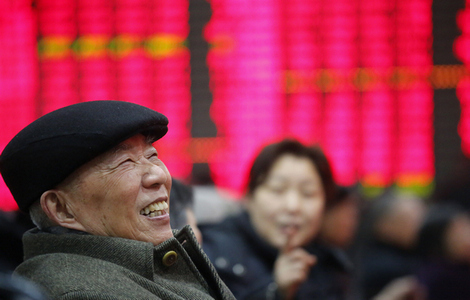China develops stronger links with eastern European nations
Updated: 2013-02-19 09:32
By Ding Qingfen (China Daily)
|
||||||||
In Moscow, Li signed 27 deals worth $15 billion with companies including Russia's United Company RUSAL Plc, the world's top aluminium producer, and Gazprombank, the banking arm of Russian natural gas company OAO Gazprom.
In Hungary, he signed seven more deals, including a $1 billion credit line for projects including a Chinese-built rail link to Budapest airport.
Tan Zuozhou, president of Liugong Poland, said: "So far, our major battlefield has been the east of Europe, although western Europe is the real high-end market, and taking a foothold there is our ultimate goal.
"The east is a relatively easier market than the west, and Europe in general sets very high technology standards for us to reach, but the main advantages of the east are cheap labor and rapid growth in terms of consumption market," Tan said.
The building equipment maker has seen its overseas sales rise fast over the past two years, hitting $440 million in 2011.
"We expect the figure to grow to 100 billion yuan by 2020, accounting for 30 percent of the corporate total sales," added Tan, with Europe seen as its strategically important market.
After its Polish takeover last February, Guangxi Liugong set up its European headquarters in the country, and a manufacturing base and research and development center.
"Through the deal, we obtained the technology and intellectual property rights of our partner, and set up a whole chain of operations from R&D and purchase to production and sales in Poland to sell our goods and provide services to all over Europe," Tan added.
East Europe contributes nearly 90 percent of Liugong's sales in Europe, but Tan said cracking the west of the region will be harder.
"We cannot call our European business a success until we win real recognition in the west," he said. "It will be a long process."
Yao Ling added that as companies from many western countries focus on their own economic recoveries, investment into eastern regions has been cut back significantly, which presents great opportunities for Chinese companies.
"Eastern Europe is in need of capital, and some nations have expressed a strong welcome to Chinese companies," said Yao.
"Cooperation with China is a win-win situation.
"Chinese companies can help their eastern European counterparts tap into the Chinese market, while in return, the Chinese can expect to gain influence in Europe through such deals," she said.
The Polish government launched a "Go China" program early last year, in a bid to attract more investment from and to promote exports to China.
Hungary, meanwhile, is believed to be considering plans to introduce new immigration regulations that once implemented will allow foreign companies and individuals who agree to buy Hungarian government bonds worth 250,000 euros to gain permanent residence - a move many are reading as a direct incentive for Chinese entrepreneurs to invest in the country.
Russia too, which entered the World Trade Organization last summer, has vowed to turn itself into the world's fifth largest economy from its current 11th position by the end of the decade, betting high on foreign investment.
However, faced with so many growing investment opportunities in East Europe, Yao also cautions that Chinese companies should be mindful of any deal they make, or step they take in a region where conditions can differ greatly from country to country.
"The government should expand its role in guiding and creating favorable environments for Chinese companies," he added.
Contact the writer at dingqingfen@chinadaily.com.cn











